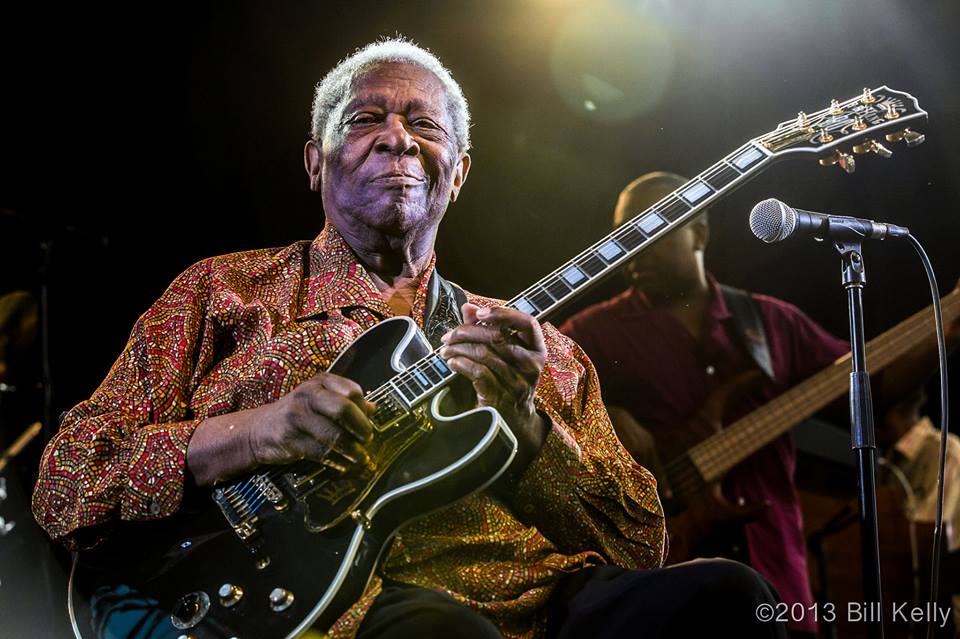
Photo by Bill Kelly
He was known as the King of the Blues and one reason is that B.B. King was the only black blues artist to fully penetrate the thick walls of American culture. King became such a well known personality and pitchman that it became easy to overlook just why he ever became so renowned: he was a groundbreaking, singular guitarist and singer.
The roots of any blues-based electric guitarist can be traced back to B.B. King, who fundamentally changed the way the instrument is played. King took single-string electric lead guitar playing, pioneered by Charlie Christian and T-Bone Walker, and coated it with Mississippi grit. The result was a highly personalized style—marked by stinging finger vibrato, incredible economy and uncannily vocal-like phrasing—which had tremendous impact on every electric blues guitarist to follow, including Guy, Albert King, Freddie King and Otis Rush. These players, in turn, inspired countless rock guitarists, notably Jimi Hendrix, Eric Clapton, Stevie Ray Vaughan and Duane Allman.
King’s life encompassed a good chunk of contemporary American history. Riley B. King, the son of sharecroppers, was born on September 16, 1925, on a Mississippi plantation and was practically orphaned at age 10 (his mother died and his father, who later became an important figure to him was at the time absent from his life). For the next three years, he lived alone in his late mother’s cabin, picking cotton before and after school, displaying the self-reliance and work ethic that shaped his life.
In his memoir Blues All Around Me, King painted vivid portraits of plantation life; the still-segregated, World War II-era Army; the fertile mid-Fifties Memphis music scene; the nation’s “chitlin circuit” of black music clubs; the Civil rights movement; and the heyday of hippie rock palaces like the Fillmore West. King saw it all as he made his bumpy ascension to the top of the blues heap, thanks to a combination of skill, perseverance and exceptional endurance: for four decades, he averaged 330 gigs a year. He played about 250 until very close to the end.
His latter years were a valedictory tour of sorts, with audiences coming to spend some time basking in his glow. But he was still capable of moments of tremendous grace, as seen on B.B. King: Live at the Royal Albert Hall 2011, especially on a poignant “You Are My Sunshine” with Derek Trucks and Susan Tedeschi. King also shined in a brief but meaty performance at Eric Clapton’s 2013 two-0night Crossroads extravaganza at Madison Square Garden, a performance that left Trucks in awe.
“That was the highlight of two nights of great guitar playing for me,” said Derek Trucks afterward. “B.B. dug deeper than he does on an average night. He played some stuff I hadn’t heard him do.”
King died peacefully in his sleep at his Las Vegas home at 9:40pm Pacific Time on May 14 2015.
Alan Paul is a senior writer at Guitar World magazine and the author of One Way Out: The Inside History of the Allman Brothers Band.


No Comments comments associated with this post